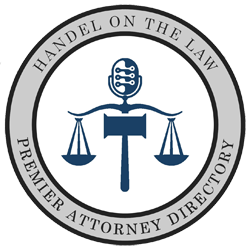Whistleblower Protection Attorneys in Moline, IL
A whistleblower is a courageous individual who reveals confidential information and exposes wrongdoing or unethical practices within an organization, whether in the private or public sector. This disclosure could pertain to violations of company policies, regulations, laws, threats to national security or public interest, fraud, corruption, or other forms of misconduct.
Whistleblowers may choose to report their concerns internally or externally, often turning to third parties such as the media or government agencies to bring their accusations to light. The process of whistleblowing is complex and can be fraught with tension. It’s crucial for whistleblowers to seek legal guidance to ensure they are protected under the law. At Katz Law Firm, our trusted whistleblower protection attorneys are dedicated to supporting whistleblowers through this challenging process, ensuring their claims are handled in accordance with legal standards.
If you are considering blowing the whistle on misconduct, aligning yourself with an experienced whistleblower lawyer is essential. From protecting against retaliation to navigating the whistleblower protection act, our team at Katz Law Firm offers comprehensive legal services to ensure your rights are protected. Whether you need assistance from a whistleblower protection lawyer, a whistleblower retaliation attorney, or support under the federal whistleblower protection act, we are here to guide you every step of the way.
Illinois Expands Whistleblower Protections!
Effective January 1, 2025, the Illinois Whistleblower Act (IWA) provides stronger protections for employees who receive adverse employment action because they report unlawful employer conduct. Key changes to this statute include:
- Protection for Internal Reports – Employees no longer need to report misconduct to external government or law enforcement agencies; internal disclosures to supervisors, bosses, board members etc. are now sufficient.
- Stronger Retaliation Protections – Covers adverse actions like demotions, wage cuts, threats and even interference with future employment. Previously, only termination was illegal.
- More Employee-Friendly Standard – Employees only need a "good faith" belief that their employer’s activity, practice or policy either violated a state or federal law, rule or regulation; OR , the activity, practice or policy poses a substantial and specific danger to employees, public health or safety
- Expanded Remedies – Increased penalties, including financial compensation, 9% prejudgment interest on lost wages, $10,000 civil penalty payable to the employee and additional "liquidated damages" up to $10,000 .
Illinois now joins states like New York and California in offering comprehensive whistleblower protections. If you suspect workplace misconduct, you have rights!
What Qualifies as a Whistleblower?
The Process
- Reporting: This is where the whistleblower makes a complaint to a government agency, an organization or employer regarding the alleged law violated.
- Filing: This is an initiation of a lawsuit or other lawful procedures.
- Testifying: This includes providing oral statements in a legal proceeding.
- Opposing: This provides for refusing to perform a task or activity that you reasonably believe is illegal.
Types of Whistleblower Laws
- Federal False Claims Act (FCA): This protects whistleblowers from retaliation after raising a claim against or opposing government fraud.
- Dodd-Frank Act (DFA): Offers protection to whistleblowers against retaliation after they provide original details of the matter to the Securities and Exchange Commission (SEC), the Commodities Futures Trading Commission or the Bureau of Consumer Financial Protection.
- Sarbanes Oxley Act (SOX): The act protects whistleblowers from reprisal when they complain about violations of wire fraud, bank fraud, mail fraud, security fraud, breach of SEC rules and regulations or, federal law regarding fraud against shareholders.
- Whistleblower Protection Act (WPA): Protects employees whistleblowers in the federal government from retaliation after they report wrongdoing.



